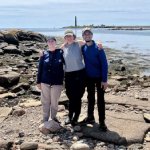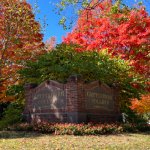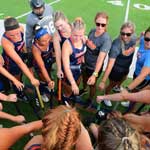
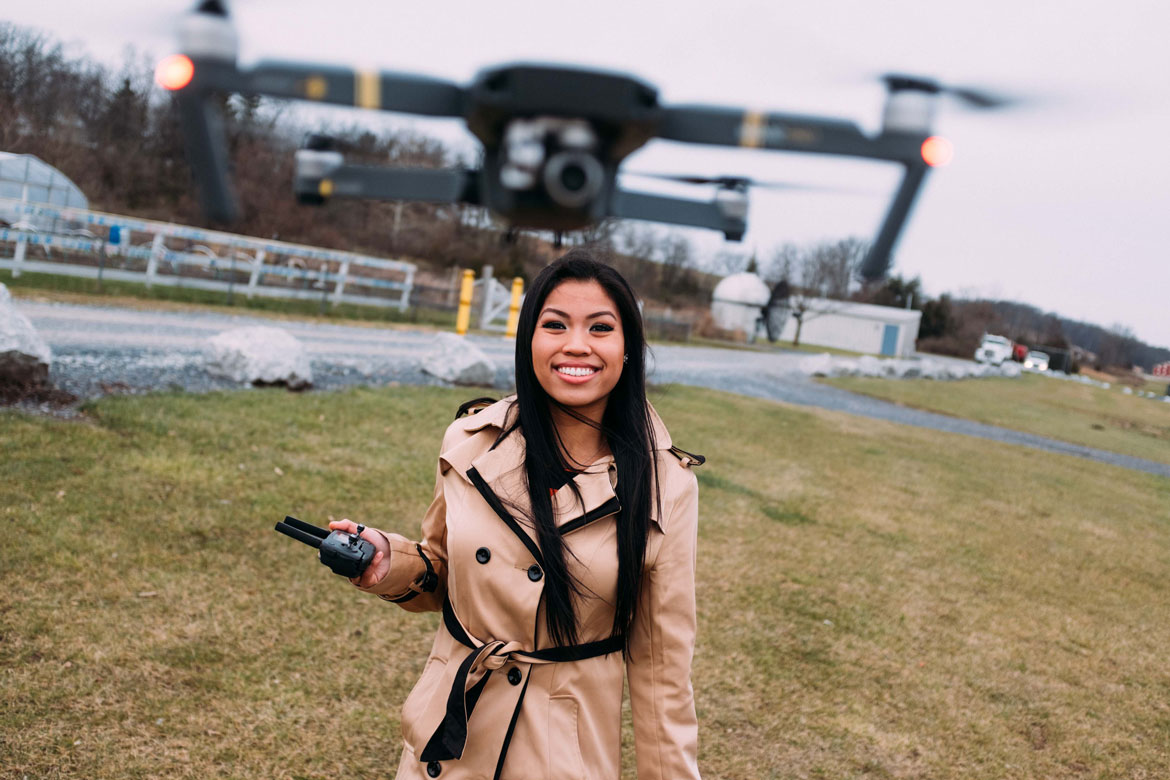
As a first-generation college student, Alyssa Kaewwilai ’20 always dreamed of using cutting-edge technology to research the natural world. Today, through Gettysburg College’s Innovation Lab—a space designed for the exploration of bold, technological ideas—she is piloting a drone to detect flood patterns on campus.
It is a project that has far-reaching implications, most notably offering insights that may better protect the College’s iconic landmarks from costly water damage in the future.
“Over the years, we have experienced excessive flooding in certain areas of our campus,” said Kaewwilai, an environmental studies major with a concentration in GIS (geographical information systems) and computer science minor. “My project’s goal is to evaluate the terrain levels that are most prone to flooding, and hopefully leverage this data to safeguard Gettysburg’s infrastructure.”
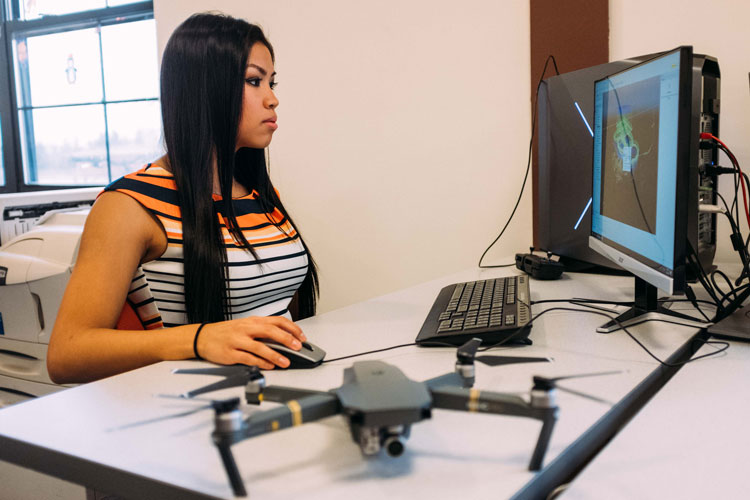
A participant in the College’s eight-week Digital Technology Summer Fellows Program, Kaewwilai gained access to a DJI Mavic Pro Platinum Drone and earned her Federal Aviation Administration (FAA) remote pilot certification to legally fly the aircraft under the Gettysburg College domain name.
“Drones are a relatively new technology. They’re becoming a really hot topic within the science community and a powerful tool for research,” said Kaewwilai, who as a sophomore conducted an environmental study with Prof. Andy Wilson to monitor bird populations utilizing drone technology.
“For my fellowship project, I flew the drone around different areas of campus—like Stine Lake, the East and West Quads, and Quarry Pond—gathering high-quality, GPS aerial photos. Then I uploaded the images into the Innovation Lab’s photogrammetry software to make 3D interactive models of the College’s elevation levels.”
Kaewwilai manufactured handheld replicas of her targeted locations using Gettysburg College’s 3D carver. These wooden replicas allowed her to physically touch the sloped terrain and develop a greater understanding of how various water patterns affect the College landscape.
“I’ve always thought of myself as an independent thinker, but I have never been given so much freedom with such state-of-the-art technology as I received through my Digital Technology Fellowship. I am very impressed with how much I learned,” said Kaewwilai, citing the mentorship she received from Dr. Eric Remy, director of educational technology, and other Gettysburg faculty members throughout the summer.
“I discovered that there isn’t always a black and white answer for projects like mine, so you have to figure things out, utilize your resources, and be creative to find solutions to your challenges. I think what drove me, specifically, was my determination to finish the project and do my best work.”
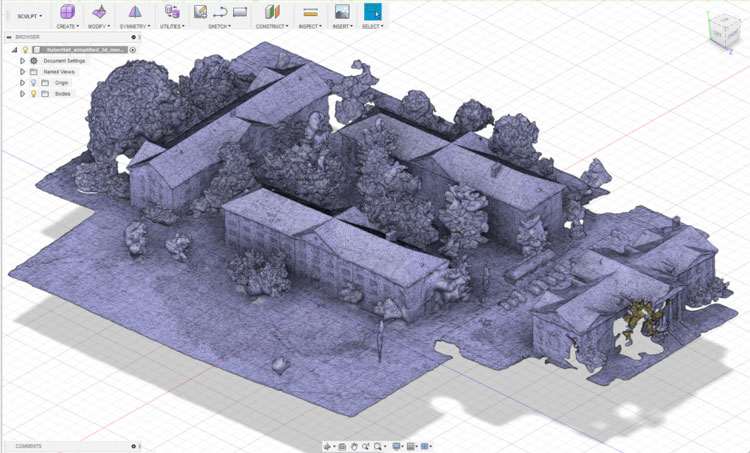
Kaewwilai’s project earned the attention of the Pennsylvania Geographical Society, which awarded her first place in their Undergraduate Student Paper Competition this fall, following a speech she delivered that highlighted her scientific findings. Her work will soon be published in the 2018-19 issue of the Pennsylvanian Geographer.
“This accomplishment is really important to me,” reflected Kaewwilai, who participated in the Gettysburg College Leadership Certificate program and now serves as the marketing and design program coordinator for the Office of Multicultural Engagement.
“As a first-gen student, my parents didn’t go to college, so in a way, my fellowship brought me back to when I didn’t know anything about the college application process and I had to figure out much of it on my own. But through experiences like these, I have discovered that the adversity I’ve faced in my life isn’t a weakness, it is actually my strength. It has taught me to overcome challenges and achieve great things that I never thought were possible.”
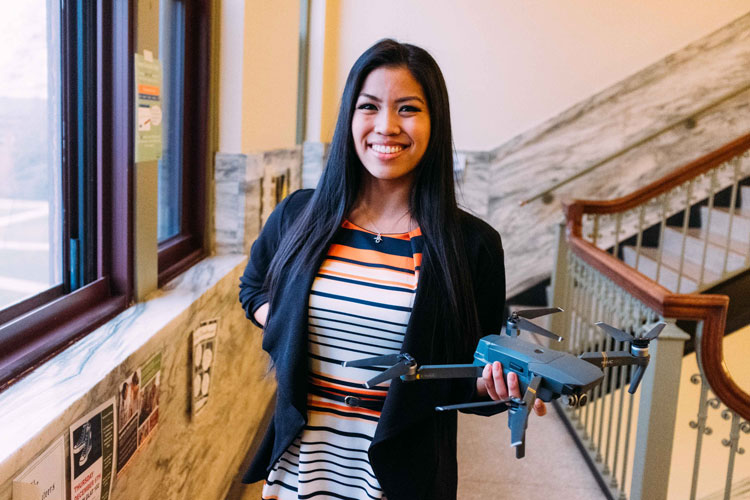
To learn more about Kaewwilai’s flood pattern project, read the Digital Technology Summer Fellows blog.
Staff
Posted: 01/29/19
